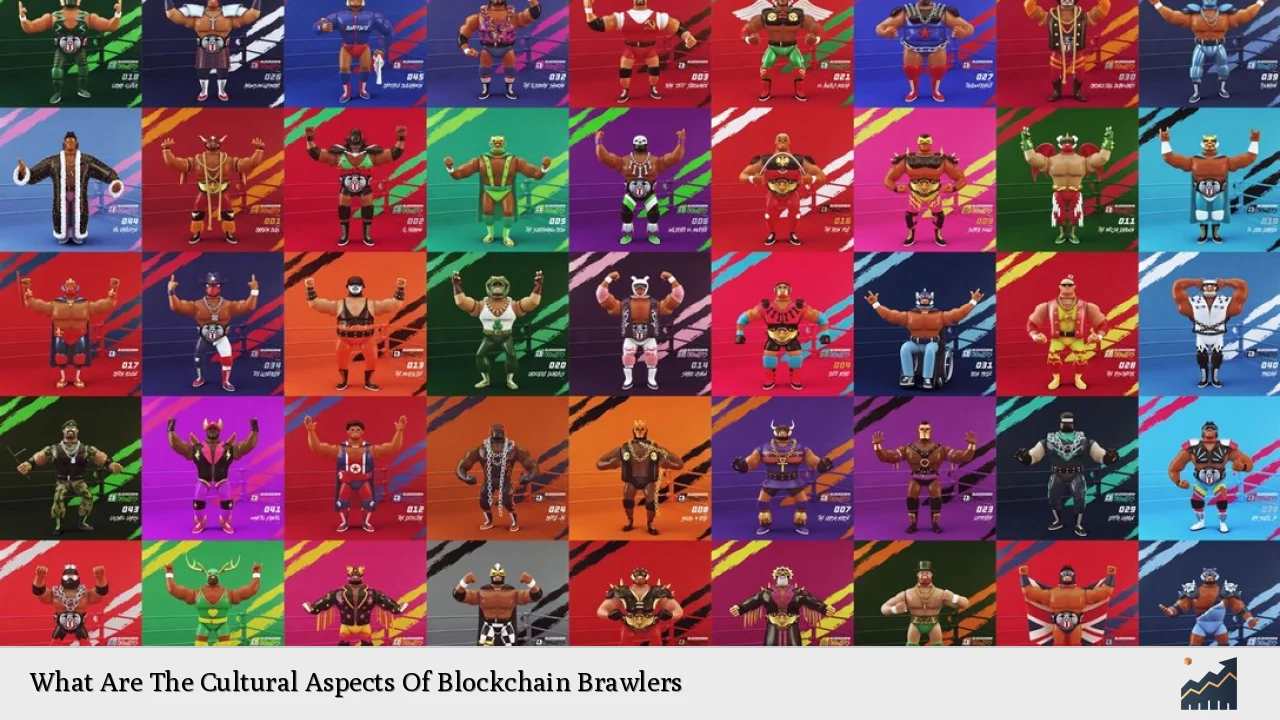Blockchain Brawlers represents a significant intersection of gaming and blockchain technology, creating a unique cultural phenomenon within the digital economy. This game, designed by Richard Garfield, the creator of Magic: The Gathering, utilizes non-fungible tokens (NFTs) to allow players to own, trade, and battle their digital assets. The cultural aspects of Blockchain Brawlers are multifaceted, encompassing community engagement, economic implications, and the evolving landscape of digital ownership. This article delves into these cultural dimensions, providing an in-depth analysis relevant for investors and enthusiasts alike.
| Key Concept | Description/Impact |
|---|---|
| Community Engagement | Blockchain Brawlers fosters a vibrant community where players interact through social platforms, enhancing their gaming experience and building relationships based on shared interests. |
| Digital Ownership | The use of NFTs in Blockchain Brawlers allows players to have true ownership of their in-game assets, which can be traded or sold outside the game environment. |
| Economic Implications | The game’s economy is driven by the BRWL token, influencing player behavior and investment strategies as they seek to maximize their returns through gameplay. |
| Cultural Diversity | As the player base grows, so does the cultural diversity within the community, leading to a broader range of perspectives and experiences that enrich the gaming environment. |
| Ethical Considerations | The rise of Blockchain Brawlers raises questions about inclusivity and ethical practices in gaming and cryptocurrency spaces, prompting discussions about responsible engagement. |
Market Analysis and Trends
The market for blockchain gaming has seen exponential growth in recent years. According to industry reports, the global blockchain gaming market was valued at approximately $4.6 billion in 2022 and is projected to reach $65.7 billion by 2027, growing at a compound annual growth rate (CAGR) of 70.3%. This surge is driven by increased interest in NFTs and decentralized finance (DeFi), which allow gamers to monetize their skills and investments.
Key Trends
- Increased Adoption of NFTs: As players seek unique digital assets, the demand for NFTs in games like Blockchain Brawlers has surged.
- Integration with DeFi: Many blockchain games are incorporating DeFi elements, enabling players to stake their tokens for rewards or participate in liquidity pools.
- Cross-Platform Play: The ability to use assets across different games is becoming more common, enhancing the value proposition for players.
Current Market Statistics
- BRWL Token Performance: As of December 2024, the BRWL token trades at approximately $0.0023 with a market cap around $2.09 million. Its all-time high was nearly $0.82.
- Player Engagement: Active user engagement remains critical; games that foster community interaction tend to retain players longer.
Implementation Strategies
To successfully engage with Blockchain Brawlers and similar platforms, investors and players should consider several strategies:
- Participation in Community Events: Engaging in tournaments or community discussions can enhance visibility and networking opportunities within the ecosystem.
- Token Utilization: Players should actively use BRWL tokens for upgrades and participation in matches to maximize their investment potential.
- Market Analysis Tools: Utilizing analytics platforms can help track market trends and player behaviors to inform strategic decisions.
Risk Considerations
Investing in blockchain gaming carries inherent risks:
- Market Volatility: The cryptocurrency market is notoriously volatile; prices can fluctuate dramatically based on market sentiment.
- Regulatory Risks: As governments worldwide begin to regulate cryptocurrencies more strictly, potential changes could impact gameplay mechanics or asset values.
- Technological Risks: Bugs or vulnerabilities within smart contracts can lead to significant financial losses if exploited.
Regulatory Aspects
The regulatory landscape for blockchain gaming is evolving rapidly. In many jurisdictions, NFTs are classified as securities or commodities, which may subject them to various regulatory requirements. The U.S. Securities and Exchange Commission (SEC) has begun scrutinizing NFT projects for compliance with securities laws.
Key Regulatory Considerations
- Compliance with Securities Laws: Developers must ensure that their tokens do not classify as unregistered securities.
- Consumer Protection Regulations: Ensuring that players are protected from fraud and misrepresentation is crucial for maintaining trust within the community.
Future Outlook
The future of Blockchain Brawlers appears promising as it aligns with broader trends in both gaming and cryptocurrency:
- Expansion into New Markets: As blockchain technology becomes more mainstream, new demographics are likely to engage with blockchain games.
- Innovative Gameplay Mechanics: Future updates may introduce new features that enhance player interaction and economic engagement.
- Increased Collaboration with Traditional Gaming Companies: Partnerships between blockchain games and established gaming firms could drive further adoption and innovation.
Frequently Asked Questions About Cultural Aspects Of Blockchain Brawlers
- What is Blockchain Brawlers?
Blockchain Brawlers is a blockchain-based fighting game that utilizes NFTs for asset ownership and trading. - How does the BRWL token work?
The BRWL token serves as the primary currency within the game for transactions such as purchasing gear or entering matches. - What are the risks associated with investing in Blockchain Brawlers?
The main risks include market volatility, regulatory changes, and technological vulnerabilities. - How can I participate in Blockchain Brawlers?
You can participate by purchasing BRWL tokens, engaging with the community, or competing in matches. - Is there a community around Blockchain Brawlers?
Yes, there is a vibrant community where players share experiences, strategies, and engage in discussions about gameplay. - What are NFTs?
NFTs are unique digital assets verified using blockchain technology that can represent ownership of items like artwork or in-game assets. - How do I store my BRWL tokens?
You can store BRWL tokens in custodial wallets on exchanges or use self-custody wallets for greater control over your assets. - What future developments can we expect from Blockchain Brawlers?
Future developments may include new gameplay features, expansions into new markets, and collaborations with traditional gaming companies.
In conclusion, Blockchain Brawlers exemplifies how cultural aspects intertwine with economic factors within blockchain gaming. By understanding these dynamics—community engagement, economic implications, regulatory challenges—investors can better navigate this exciting frontier while contributing positively to its growth.

